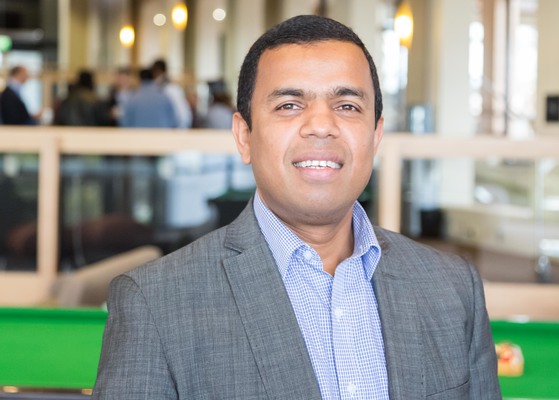By Luke Voogt
Anglesea could convert to renewable energy in as little as two years, a Deakin electronical engineering expert has said.
Associate Professor Aman Than Oo, who works on the Surf Coast Shire’s renewables panel, said the region was well suited to green energy.
The head of Deakin’s electrical engineering department said his team had modelled energy consumption and 12 months of weather patterns on the Surf Coast.
“There are strong wind patterns in the region,” he said.
Assoc Prof Than Oo made the comments following an announcement by local group Anglesea Community Energy (ACE) that it would work towards 100 per cent renewables.
But for the goal to become a reality Assoc Prof Than Oo said the town would have to decrease its energy usage by 20 to 30 per cent.
“Energy efficiency is very critical before we look at the sources for our need.”
The town’s population surges to more than 16,000, eight times its population, during summer months, according to Surf Coast Shire data.
Assoc Prof Than Oo added that advancements in battery technology would be a key part of making a town like Anglesea carbon neutral.
“They are still very expensive and not very efficient and they consume a lot of space. But their performance is improving week by week.”
Assoc Prof Than Oo said the town could work on a “micro grid”, producing solar and wind energy where it is consumed.
“We have seen this in towns in Sweden and Germany.”
He added that such a system could save electricity normally lost as it travelled cross-country via power lines.
“Along the way, depending on the age of those assets, we lose 20 to 30 per cent.”
Assoc Prof Than Oo said a town the size of Anglesea could see a” return on investment in four or five years”.
He said using renewable energy sources in Anglesea would not cause electricity prices to rise in other parts of Geelong.
Renewable energy was sold back onto the grid at 4 cents per kilowatt/hour, while electricity normally retails at 18 to 35 cents per kilowatt/hour, he said.
Earlier this week the ACE’s Sally Groom announced that the group would work to 100 per cent renewable energy.
“We’re aiming to get some small-scale renewable energy projects up and running, such as rooftop solar on larger buildings and an electric car charging station,” Ms Groom said.
The newly-formed group of “environmentally-conscious locals” initially came together to discuss the future of the old Alcoa site.
“We quickly realised that the Alcoa site was not the only option for community energy in Anglesea and that there were other ways the town could become more energy efficient.”
ACE’s ultimate aim is to help the Anglesea community reduce its reliance on fossil fuels.
“In the medium term, we will be trying to put together a model to work towards a 100 per cent renewable Anglesea,” Ms Groom said.









